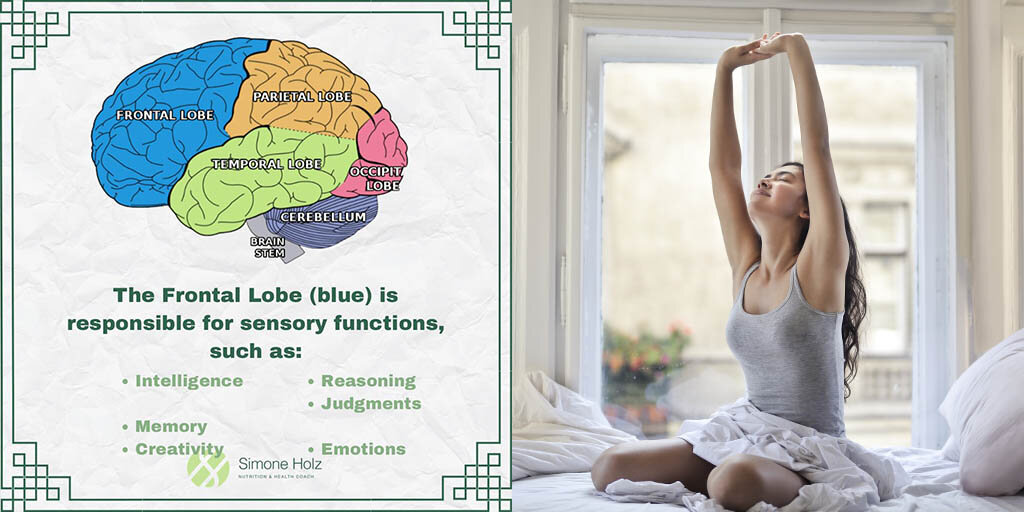The Importance of Sleep for Creativity
The Importance of Sleep for Creativity
By Simone Holz, Community Manager, The Global Interview.
In today’s stressful and busy world, getting enough sleep is a challenge for almost everyone. Sleep is vital for optimal health, and while you are sleeping, your body is resting and repairing tissues, muscles, cells, restoring your energy and supporting other functions within the body. Have you ever spent a night tossing and turning around? If the answer is yes, you probably know that feeling of tiredness, cranky, groggy and grumpy the next day. Sleep 7 to 9 hours per night has a relative impact on your creativity.
This article will explain the importance of sleep, linking it to more creative and comprehensive health benefits.
How does the Brain work?
The brain works in conjunction with the spinal cord, which regulates non-conscious processes and coordinates most of the body’s voluntary movements. In other words, the brain is the site of consciousness that allows humans to think and learn.
The Cerebral Cortex, which is found in the prefrontal area on the posterior part of the brain, is responsible for sensory functions. It will integrate mental processes such as intelligence, memory, creativity, reasoning, judgments, emotions, etc.
While you are sleeping, many biological processes are happening in the brain, such as eliminating toxic waste and restoring new information. Neurons and nerves cells get recent reorganisation. So, for the brain to work at optimum levels, it is essential to have 7 to 8 hours of sleep per night.
What happens if you don’t sleep properly?
A poor night sleep or a sequence of sleep deprivation can be the route cause of the points below:
Low serotonin
High adrenaline and cortisol
Low energy
Poor concentration
High-stress levels
Learning difficulties
Memory loss
Less problem-solving skills
Impaired creativity
Problems to take decisions/focus
Research shows that sleep has three to four cycles in a process called REM (rapid eye movement) and NON-REM (non-rapid-eye movement), where the body starts to slow down and prepare for sleep. If you are sleeping less than 7 hours per night, probably you are not going through these sleep stages and in the future can start to develop health problems such as the ones linked above that will consequently lead to health risk.
Why is sleep important for creativity?
According to the Proceeding of National Academy of Sciences of the United States of America (PNAS) develop a study where they analyse in three different groups how sleep affects the ability to be creative. The results have been shown that sleep seems to enhance creative and cognitive flexibility. And they found that what matters most is the quality of sleep that goes through the cycles of sleep, not the quantity.
Take as an example Albert Einstein, one of the best most known physicists globally, who took this advice about sleep very seriously. Einstein reported that he slept 10 hours per night because he knew that sleeping is good for the brain. To improve your creativity, productivity, taking decisions in a fast and effective way is highly recommended to enhance sleep patterns.
How to Improve Sleep
It is not just as simple as laying in your bed and falling asleep. It is essential to prepare yourself and allow your mind, brain and body to relax before sleep. Here are some steps that to increase the quality of sleep to promote health:
Set a regular bedtime routine – go to bed every day at the same time. Choose a time when you are generally tired. Try not to break this routine.
Don’t sleep with a disturbed mind – we all are worried about something, having fear or anger with things that are going on in our lives: some meditation, a couple of breathing exercises before finally sleep.
Place your mobile phone, laptop far away from you – all the electromagnetic waves can disturb your sleep. We are all surrounded by energy as much as we disconnect with these electronic energies; around 1 hour or more before bedtime, we have more chance to have a deeper sleep.
Lighting – room lights can also affect our sleep. Sleep in a dark room, without noise, no phone, no tv if possible. This will help you to sleep better.
Remember that daily habits have a powerful impact on your health, body, brain, mind and never forget that your body is a powerful machine where everything is connected. So, if one part is not functioning well, the other will be affected as well.
Sleep is an essential component of your life. It will help the body and brain regenerate. Enhancing sleep quality will be possible to achieve great results related to creativity, intelligence, and problems solving. It will improve your energy, wellbeing, and you will feel healthier.
Simone Holz, Community Manager at The Global Interview, is also a Nutrition and Health Coach who helps people improve eating habits and have a balanced diet. Simone encourages her clients to get into a routine of exercise, enhanced sleep patterns, and mindfulness techniques that help manage and promote a healthy lifestyle.
Simon Holz, Nutrition and Health.



